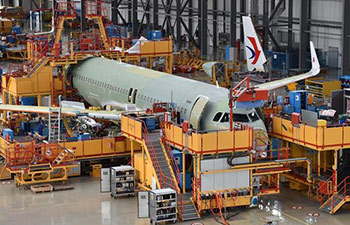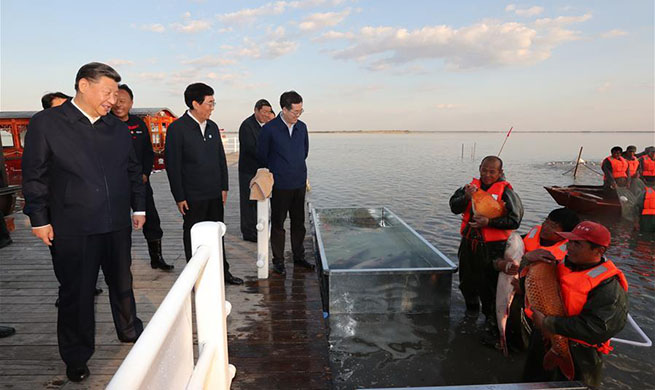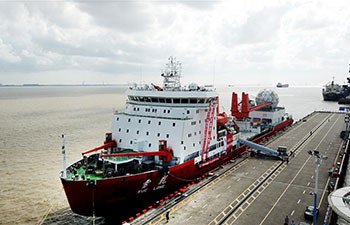THE HAGUE, Sept. 27 (Xinhua) -- The European Union (EU)'s new connectivity plan marks its growing confidence as a connectivity actor and could help improve mutual understanding between Brussels and Beijing, said Francesco Saverio Montesano, senior research assistant at the College of Europe.
In its new strategy released last week, the EU calls for a comprehensive, sustainable and rules-based connectivity and expresses its willingness to boost cooperation with China and other Asian countries.
"While the EU's new plan does have competitive elements in relation to China's Belt and Road Initiative, European and Chinese observers alike have also been quite optimistic with regard to their interplay, stressing that Brussels and Beijing could benefit from the compatibility (and possibly complementarity) of their initiatives and work together to open new markets, hence benefitting all parties," Montesano said while presenting the EU plan at the Dutch think tank Clingendael's weekly Silk Road Headlines.
"I am moderately optimistic with regard to the interplay between EU and Chinese connectivity initiatives," the researcher at the Department of EU International Relations and Diplomacy Studies at the College of Europe in Bruges, Belgium, told Xinhua.
"Connectivity has already been quite high on both actors' agenda for some time, and both have acknowledged the importance of the other in this regard. This is especially true given the isolationist and at times disruptive stance towards global governance, including in the field of connectivity, of the current U.S. administration," he said.
The launch of the new connectivity strategy can be seen as the by-product of the EU's growing confidence as a connectivity actor, he said.
The breadth of the initiatives envisaged under the strategy, including trade, transport, finance, digital, energy, climate change, education etc., calls for stronger cooperation not only with "target" Asian partners, but also with other key actors operating in the region, notably China, as well as within the EU, both among member states and between them and EU institutions, he added.
Montesano also noted that high-level EU figures have emphasized the normatively different nature of the EU's connectivity strategy vis-a-vis other existing initiatives, as it fosters a sustainable and rules-based model, striving to adhere to high standards of transparency and environmental protection, and ensure a level playing field for enterprises.
"Now that the EU has an official overarching strategy, the EU and China could sit down and talk about connectivity at large in a more balanced way, each having their own flagship initiative and possibly using the EU-China Connectivity Platform, a Brussels-driven initiative launched in 2015, as a bridge to enhance cooperation in the field," he said.
"The values-based elements of its external projection in the field of connectivity can be made clearer, and this could help improve mutual understanding between Brussels and Beijing, hence leading to better bilateral communication, coordination, and cooperation," he said.
"In general, however, I believe that the new EU strategy could help foster greater understanding between the EU and China, and this is per se an important contribution for the future of the strategic partnership, given how lacking awareness and flawed knowledge of the other side (e.g. in the field of trade) have been major hurdles in the bilateral relationship in recent years," the expert said.













